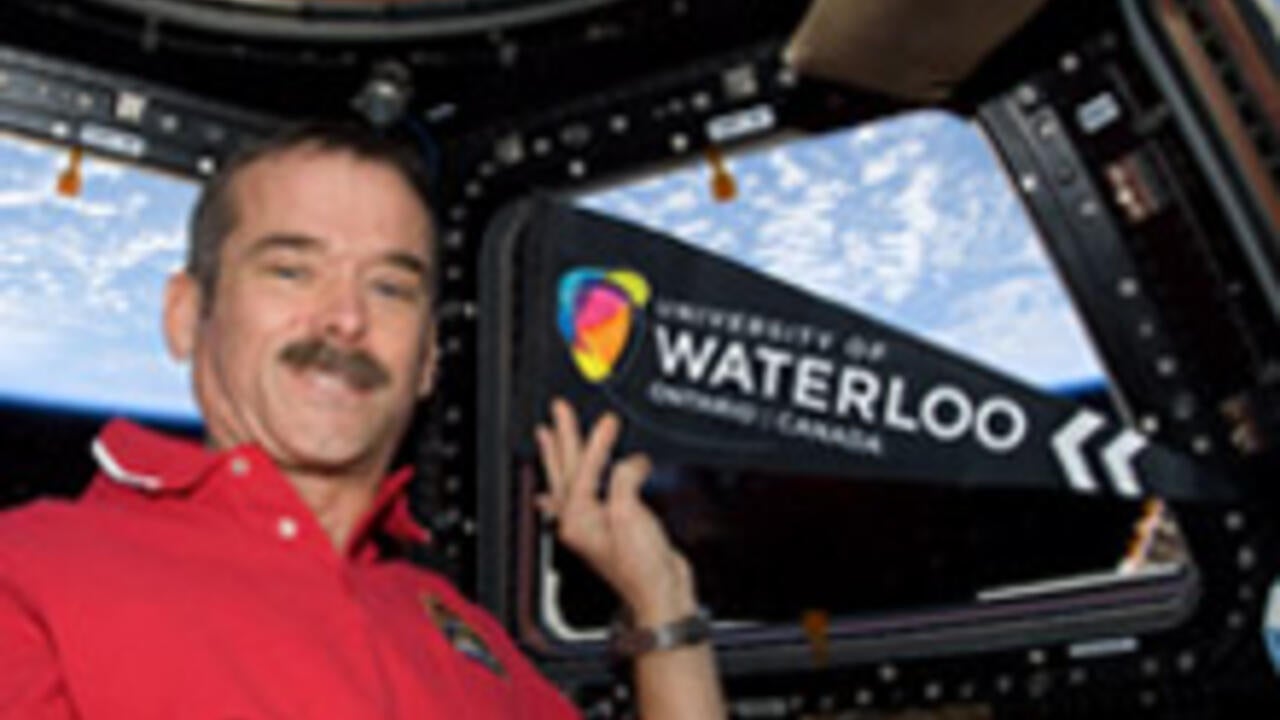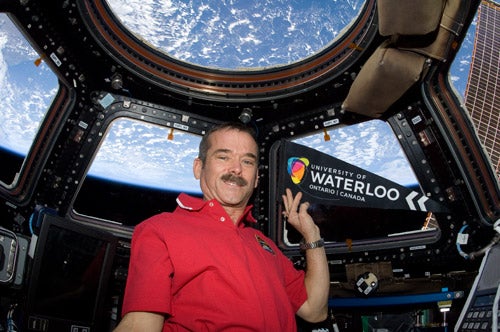
Chris Hadfield wins national award for science promotion
Adjunct professor’s International Space Station tweets and videos turned spotlight on space

Adjunct professor’s International Space Station tweets and videos turned spotlight on space
By Christine Bezruki Applied Health SciencesNominated by the University of Waterloo, Chris Hadfield, former commander of the International Space Station (ISS), and adjunct professor at Waterloo, is the recipient of the prestigious Award for Science Promotion from the Natural Sciences and Engineering Research Council of Canada. The award, announced today at an event in Toronto, recognizes an individual who is inspirational in the way they promote science to the general public.

During his five months aboard the International Space Station Hadfield garnered a global following for his tweets and YouTube videos chronicling daily life in space. From demonstrating the best way to clean up messes with no gravity to how to sleep in space, Hadfield’s entertaining videos helped popularize science among children and adults, alike. He also provided followers with a glimpse into more serious science aboard the ISS — his role in two Waterloo-based science experiments.
In a study led by Richard Hughson, a professor in the Faculty of Applied Health Sciences, Hadfield collected data that allowed researchers to monitor changes to his cardiovascular system during spaceflight. The study offered insights into recovery from rapid changes in blood pressure, which may have widespread health applications for older adults and could help in the prevention of falls. Building on this research, Hughson is now working with European Space Agency astronaut Timothy Peak to track exactly how—and why— the body’s blood vessels change, and use these findings to potentially improve quality of life and the burden of chronic disease.
Chris Hadfield is an adjunct professor at the University of Waterloo, cross appointed between the Faculty of Applied Health Sciences, the Faculty of Environment and the Faculty of Science.

Read more
Here are the people and events behind some of this year’s most compelling Waterloo stories

Read more
Meet the 14 exceptional students representing Waterloo’s newest grads

Read more
The medal honours outstanding individuals across Canada who have made significant contributions to their communities
The University of Waterloo acknowledges that much of our work takes place on the traditional territory of the Neutral, Anishinaabeg, and Haudenosaunee peoples. Our main campus is situated on the Haldimand Tract, the land granted to the Six Nations that includes six miles on each side of the Grand River. Our active work toward reconciliation takes place across our campuses through research, learning, teaching, and community building, and is co-ordinated within the Office of Indigenous Relations.